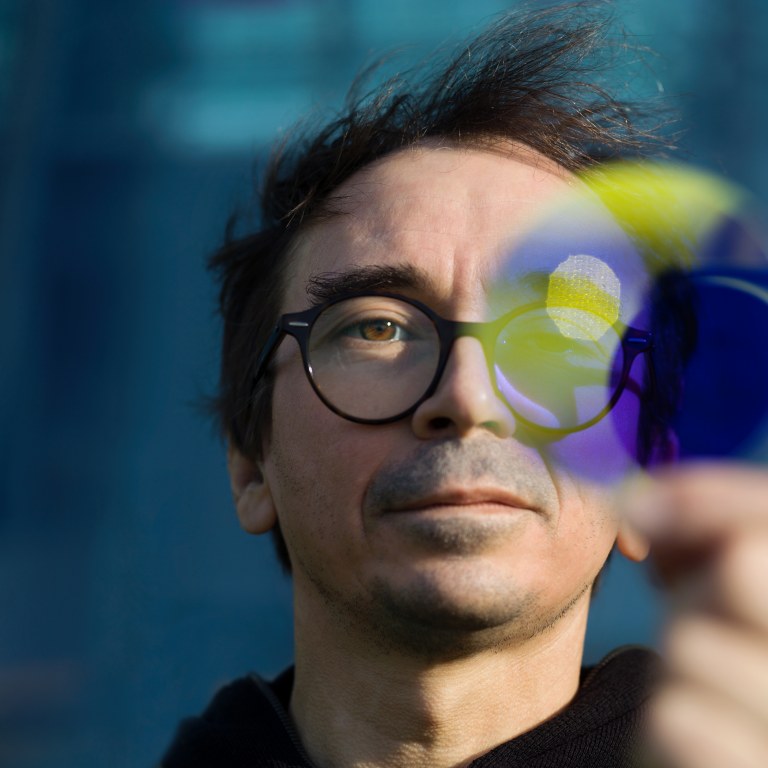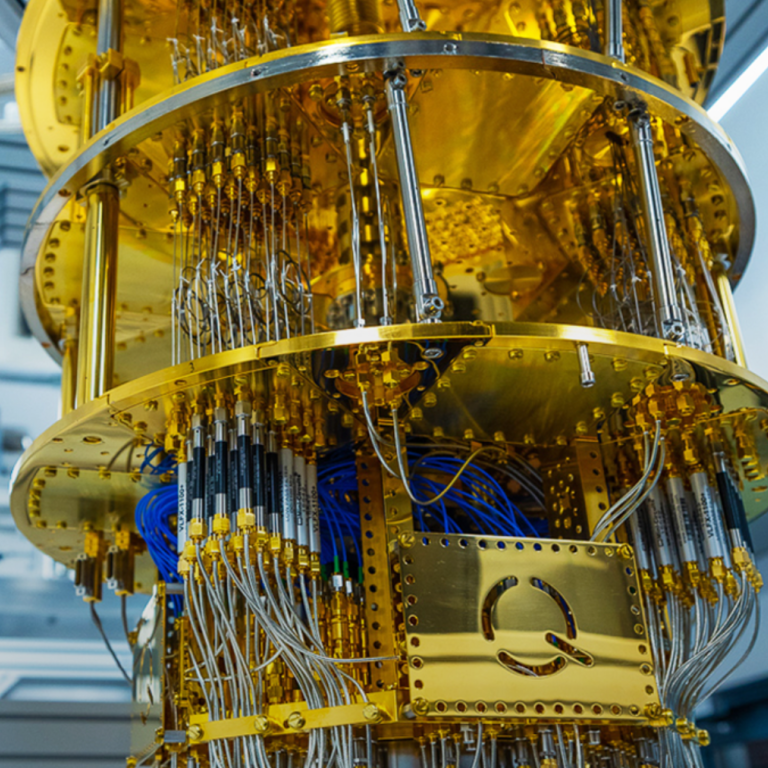Quantum technology is expected to bring about a revolution like artificial intelligence. What kind of experts are developing the quantum industry and other technologies of the future? We had a chat with Principal Hanna Harilainen of The Finnish School of Watchmaking and two of the school's graduates, Ville Sampo and Markus Kultanen, who are now working at the quantum technology company IQM.
The Otaniemi area in Espoo is one of the densest innovation hubs in the world. In Otaniemi, even traditional-sounding know-how can push the boundaries of science and revolutionise the world. The Finnish School of Watchmaking in Leppävaara is a unique educational institution where students practice the mind-hand connection. The components are tiny and beautiful. In the future, proficient microscopy skills will be increasingly needed in the fields of industry and technology, for example, in optics, medicine, space technology, and prosthetics.
Each year, half of the thirty new students of the school start a degree programme in watchmaking and the other half in micro-mechanics. The degree programme in micro-mechanics was originally tailored to the needs of trade and industry in the late 1990s. Some people are cautiously predicting that the quantum technology know-how of Finland has the potential to become the next Nokia.
The students of micro-mechanics learn a way of working that can be easily scaled. On the one hand, dexterity is required due to the small size of the components to be used, and on the other hand, the work requires planning transport solutions for quantum computers weighing as much as a car.
"Our graduates are highly skilled in precision work and are able to make micro prototypes, for example," says Hanna Harilainen, Principal of The Finnish School of Watchmaking. "Quality is the result of proficient craftsmanship, which is why our students are in high demand."
[The article continues after the image]
Wide range of employment opportunities
A degree in micro-mechanics offers an easy access to a career where you get to impact great things. According to Harilainen, the school has good connections with companies in the field, and the career prospects of the students are excellent. They are being ripped out of school to work at innovative technology companies of the future.
"This autumn, some of our students will be completing their training agreement period at Hitachi, Bluefors, which is a pioneer in cryostats, Otto Bock in Germany, specialising in prosthetics, and Whitepoint Optics, which manufactures film lenses. In Espoo, there are new-technology companies and startups that do great things at the pioneering edge."
The companies in the Otaniemi area are exceptionally committed to the Sustainable Development Goals. Researchers, scientists, and entrepreneurs working in the area set their goals high, whether it is a positive carbon footprint or excellence in the field.
From microscopes to very heavy quantum computers
The quantum technology company IQM is also creating the future.
"We are creating something completely new here," says the company's Delivery Technician, Markus Kultanen. He and Cleanroom Technician Ville Sampo graduated from The Finnish School of Watchmaking in successive years at the turn of the 2020s. Today, Markus delivers and assembles quantum computer systems for customers, and Ville performs core work tasks in the cleanrooms, carrying out photolithography and etching on silicon wafers. Photolithography is basically the same method that has been used in the development of old photographs, and etching is an old technique used in art. The principles are the same in the methods, but the accuracy, quality and repeatability of the techniques have improved.
The manufacturing of processors does not differ much from the manufacturing of a classic computer. Quantum computers differ from "standard computers" in their principle of operation. An ordinary computer uses transistors to control electrical currents. The units of electronic information, i.e. bits, can only be in state 0 or 1, i.e. ON or OFF. Instead of bits, a quantum computer uses qubits, which are "everything between zero and one" at the same time.
"I don't understand it fully either," Ville admits. “It's a bit of a mystery."
In just a few minutes, quantum computers can calculate medical calculations, which would take thousands of years for classic supercomputers to calculate. In a more mundane application, quantum computers can forecast the weather more accurately. The computers can also be used to simulate, for example, a metropolis like Tokyo and its transport system. Then, you can test, for example, how keeping one traffic light in red for a little longer would affect traffic in the entire metropolis.
Solid faith in the developing field
According to Ville, everyone at IQM is motivated and pulls together. The employees represent about fifty nationalities, which enriches the company's culture. Markus was the first member of his team and has been able to play a major role in developing the delivery process of quantum computers. He finds the field fascinating because it is developing at a tremendous pace.
Ville and Markus mention solid technology know-how and education as Finland's biggest assets in the field of quantum technology. For example, IQM and Bluefors have both originated from Aalto University.
"It is motivating to think that we are competing on an equal footing with IBM and Google," says Markus. "As a small Finnish startup, we all firmly believe that we can do this. We are smart enough, and we have each other's backs."
Related stories
Hero image: The Finnish School of Watchmaking



